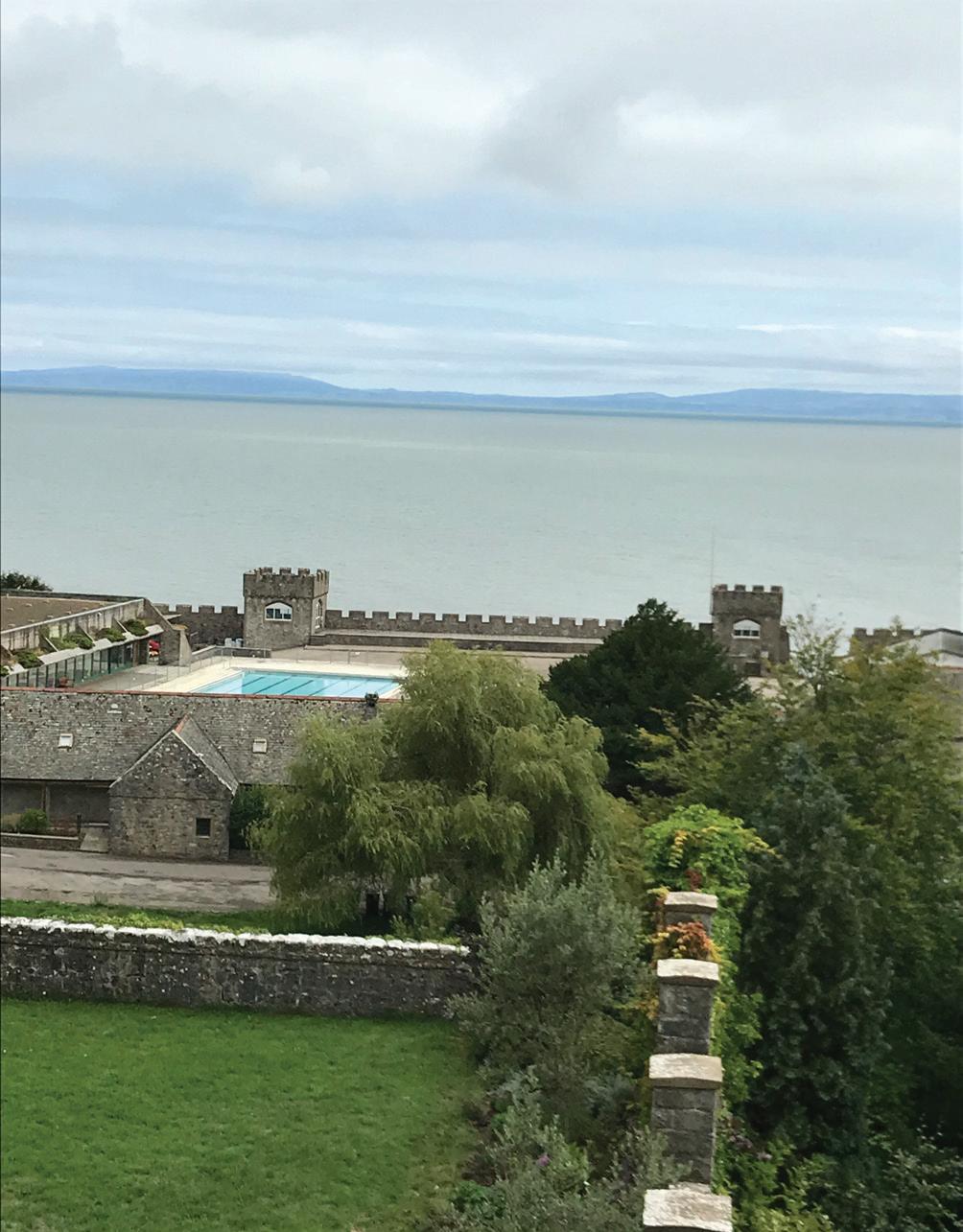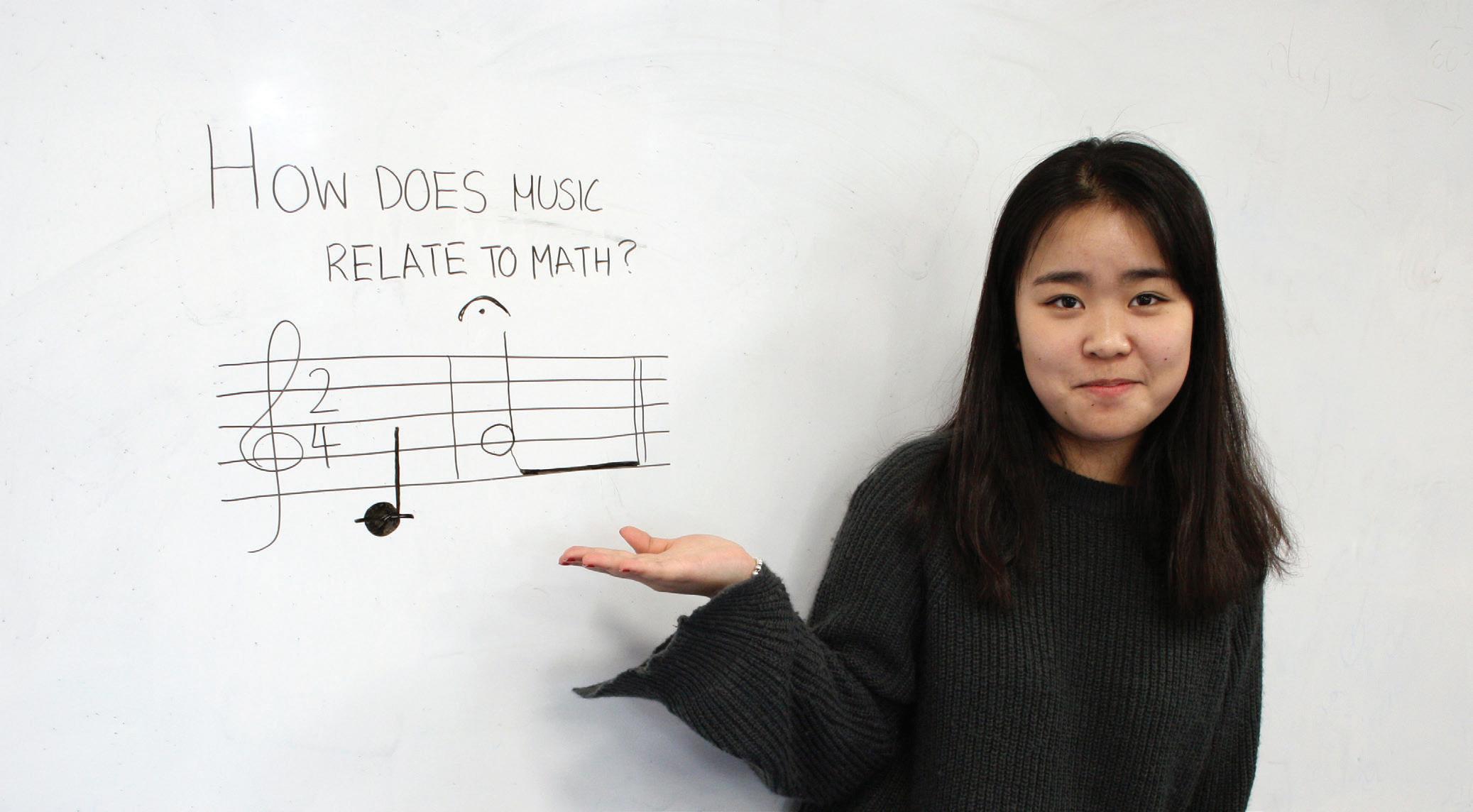
5 minute read
Is the IB meeting the needs of our times? Mikki Korodimou
Is the IB meeting the needs of our times?
We must acknowledge the ‘certainty of uncertainty’, writes Mikki Korodimou
Practising education that ‘meets the needs of our times’ (the founding principle of the Atlantic College project in 1962 (Jonietz and Harris, 2012)) requires an in-depth personal, communal and global exploration to understand what exactly these needs are. Answering this pertinent problem means taking a step back. It demands a critical reflection of where we are at in terms of our educational practices and the world we call home. It asks of us to think about how we have arrived here and perhaps most importantly to reflect upon where we wish to go.
Coming into teaching for the first time in January 2018 at UWC Atlantic College was invigorating. It was challenging and it was adrenaline-filled. Learning early on that saying ‘I don’t know’ was OK, I started to feel like the possibilities for exploration in the classroom were infinite. Despite the evident engagement and curiosity ignited in the students, however, when we delved into the unknown the stress of moving away from the security of the syllabus, textbook and marking criteria quickly became apparent. The word ‘assessment’, the dreaded 45 points maximum of the International Baccalaureate Diploma Programme, and the question ‘is this going to be in the exam?’ crept in. Boundaries of time and space for experiential, personal and contextuallybased learning materialised. The focus of education, it seems, is increasingly on the end goal, rather than on the means used to get there. We are turning what should be a learning journey (synonym for life) into a process of accumulation. Whether it be IB points, experiences, or CAS (Creativity, Activity, Service) hours in the IB Diploma, we are collecting, without necessarily engaging with value in the process or the interconnected nature of all that we do.
The success of the IB over the past 50+ years has been phenomenal; there are numerous benefits of the education provided by the IB Diploma Programme, and countless examples of how the programme can be moulded, tailored and contextualised by passionate and engaged educators. Yet there are also downsides which must not remain in the shadows of our contentedness. In his recent book, David
As you set out for Ithaka, hope that your road is a long one, full of adventures, full of knowledge. Extract from Ithaka by Cavafy
Gleason (2017) explores the ways in which competitive educational environments are impacting young people. We are over-scheduling, over-burdening and over-pressuring students. The drive for 45, and to excel, is causing high levels of anxiety and stress. This troubling observation is echoed by young people, parents and educators alike. If (albeit somewhat problematically) we are telling our bright young people that it is up to them to fix the issues in the world today, then we need them to be well in order to do so.
We live in a world characterised by uncertainty. In times of uncertainty, we need flexibility and creativity to react. What’s more, we need to have the space to see the connections between all that we do, as only then will we even have a glimpse at the larger picture. So how do we ensure that we create room for space, systemic thinking and flexibility in the rigid and long-engrained systems within which we currently educate? What do we want at the core of education? How do we put wellbeing at the centre of all that we do? Where are we succeeding in our educational approaches and where is there room for additions or improvement? These are all questions which our team of students and staff at UWC Atlantic College have begun to engage with over the course of the past year.
The Land and Sea Stewardship project at UWC Atlantic College is a collaboration between students and staff to design a new programme of education that is relevant to the needs of the world of today and its future. Our learning

UWC Atlantic College journey so far has brought about several important lessons. Young people need to have space in which to reflect, to play and to exist without the requirement of making all their time ‘productive’. It is within this space that they will be able to absorb, process and reflect upon the ways in which the things they are learning relate to them. Wellbeing cannot be an addition to the education we currently provide; it must be central to the design of the system. By thinking about education as process and journey, we are able to take a step towards extracting it from the silos that grades and subject disciplines have put it into. Unlike the structured framework in which we currently operate, a more processual journeylike approach could help us to overcome the rigidity of disciplines and groups, and challenge dichotomies such as curricular and extra-curricular education.
Learning from place is also extremely valuable. We are beginning to see that as we delve into the depths of the ‘global world’, the ‘local’ is in danger of becoming part of a mythological past. International education is perhaps especially guilty of this. Yet, in international schools across the world, where we revel in the glory of our communal ‘multiculturalness’, perhaps we are at risk of missing out on the lessons we can take from making hosting spaces into places attached to meaning. By attempting to engage in place-based learning, we hope to remedy this, and allow for international education to have space for contextual connections.
Where do we go now? Perhaps thinking about what the needs of our times are is the wrong starting point. We should be thinking about designing systems of education (and all other types of systems which hang from it) that are flexible enough to adjust to the needs of the times, both today and beyond. Acknowledging the certainty of uncertainty could allow us to place wellbeing, flexibility and values at the heart of educational design, thus giving space for education to mould to changing climates (political, economic, atmospheric and more). There is a long learning journey ahead for us in this monumental task, but in the same way that Cavafy urged travellers to Ithaca to hope that their road be a long one, we too welcome the lessons and experiences coming our way.
References
Gleason, D L (2017) At what Cost?: Defending Adolescent Development in Fiercely Competitive Schools. Concord, MA: Developmental Empathy. Jonietz P L & Harris D (2012) World Yearbook of Education 1991: international schools and international education. London: Routledge.









